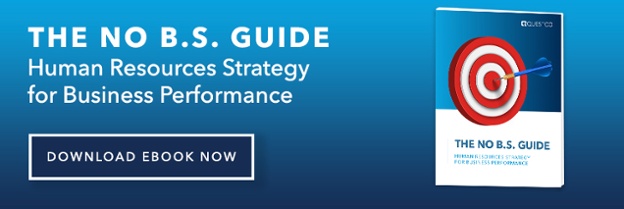Topic Employee Benefits
Why Your Company Needs to Offer Four Core Benefits

June 24, 2021 | By Laura Platero

Small and medium-sized businesses often find it hard to attract and retain top-talent in their industry. You may feel the same pain. And you might be able to trace the cause to a single operational issue—your company benefits package.
At a minimum, all companies must offer some benefits which are required by law. Some companies go above and beyond, making it easier for them to attract and retain the best employees. Companies that do not offer at least four core benefits miss out on the best talent.
Businesses must invest in their employees and that includes having a strong benefits package. Included below are the four core benefits your company should offer, along with information about the federally mandated benefits.
What are the federal mandatory benefits?
Every state has benefit requirements. Some mirror the federal government and others have additional requirements. For federally mandated benefits, all employers, with few exceptions, must provide the following:
- Medicare contributions
- Social Security contributions
- Federal Insurance Contributions Act (FICA)
- Unemployment insurance
- Workers' compensation insurance
For companies with more than 50 full-time employees, there are additional benefits companies must provide. These include:
- Affordable Care Act (ACA) health insurance
- Family and Medical Leave Act (FMLA) coverage
- Additional benefits mandated by the state
Running a company in an ever-changing environment with constantly evolving employment laws presents unique challenges. Between all of these mandatory benefits, you can easily get confused about what you need to offer. Even more confusing can be the benefits your company should offer to keep a competitive advantage but are not required to offer under the law.
What are core employee benefits?
Core employee benefits are benefits that are not required under the law, like those above, but are necessary to retain a competitive advantage in the marketplace. Employees seek out these benefits because it shows their employer cares about their success and their future. Today's job market presents unique opportunities for your company to stand out from the pack by offering core employee benefits. Without these benefits, it's nearly impossible to compete.
Medical Insurance
For companies larger than 50 full-time employees, medical insurance is mandatory under the ACA. For these companies, they must offer health insurance options but they do have the ability to pick and choose the plans.
For smaller companies, you may not be required to offer health insurance as an employee benefit. But that could severely hurt your company's ability to attract and retain the best employees in your industry. To hold a competitive advantage, you need to offer health coverage as part of your benefits package.
Life Insurance
Many employees seek out life insurance options. When a company offers this benefit, usually in the form of one year's salary paid entirely by the company, employees feel more secure. In the event that something tragic happens to them, their family will be taken care of.
Without offering life insurance, your company misses out on the employees who want this benefit. That may mean your competitors are able to attract higher-quality employees than you.
Short and Long-Term Disability Insurance
Some states require employers to provide short- or long-term disability insurance. Be sure to check your state requirements to remain compliant.
Even if it's not required in your state, you can still benefit from offering this insurance to your employees. More than anything, it gives them peace of mind that if something happens, they will be taken care of. That's a benefit many employees seek out.
Retirement Plans
Offering employees retirement plan options, especially a 401(k), helps them feel valued. By looking out for their longer-term financial future, you show employees that you care about their success.
Many employees specifically look for companies who offer retirement benefits. Not offering these benefits could hurt your success by failing to attract and retain employees.
Why offer core employee benefits?
When deciding whether to accept a job offer with a company, employees most heavily weighed the following benefits:
- Health insurance: 45%
- PTO: 38%
- Retirement plans: 37%
- Flexible work schedules: 26%
- Paid parental leave: 20%
If you don't offer a comprehensive suite of benefits, not only could you miss out on exceptional hires, you could lose employees to competitors. This increased turnover could substantially affect your company's success.
How does HR outsourcing reduce the cost of core employee benefits?
HR outsourcing is a common way small and medium-sized businesses can meet the needs of their employees. Partnering with a Professional Employer Organization (PEO) can provide your company with robust benefits.
When you outsource your HR needs to a PEO, you can access their master policy for health insurance which provides all of the core benefits at a lower cost than would be possible on your own. A PEO has the ability to negotiate better rates for all of the core benefits. Through economies of scale, your PEO may be able to pass those savings onto your business, giving you the ability to offer top-notch benefits to help attract and retain the best employees in your industry. Without a trusted PEO partner, you risk losing ground to your competitors.
Offering core benefits doesn't have to break the bank if you partner with a PEO. With the right PEO services, your business will see a positive ROI.
.jpg)
Laura Platero
Laura serves as the Director of Product Strategy. She is an expert in large scale benefits account management, project management, product development, sales, customer service, and benefits consulting.




